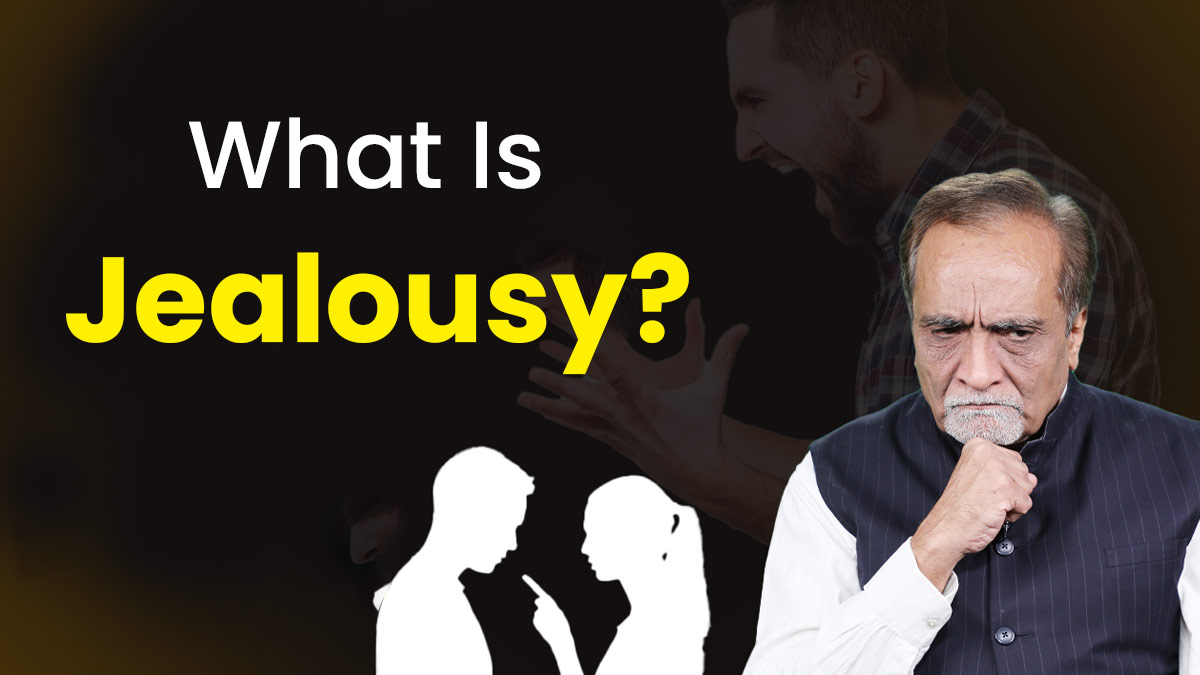
You might have noticed feelings of insecurity, fear, and resentment when your friend or colleague excels in life or when your partner starts talking to their ex. While this feeling of jealousy is normal, however, it may affect your mental well-being if the feeling intensifies. This week in our ‘Mental Health A-Z’ series, Dr Nimesh Desai, Senior Consultant Psychiatrist, and Former Director, IHBAS, Delhi, explains jealousy and how to deal with it.
Table of Content:-
What Is Jealousy?

“Jealousy is a feeling in which a person develops negative emotions towards 'others' prosperity and happiness. People who are jealous feel and think negatively and enviously”, said Dr Desai.
According to PN Stearns, in the Encyclopedia of Human Behaviour, Jealousy is a complex of thoughts, feelings, and actions that occur after a threat to self-esteem or the quality of a relationship.
Also Read: Mental Health A-Z: Expert Explains Learning Disability And How To Deal With It
Levels Of Jealousy

“Before understanding the levels of jealousy, it is important to know the levels of mental health, namely mental disorder, mental distress, and mental wellness. Understanding these levels of mental health helps to find solutions for a mental health condition or a disorder”, said Dr Desai.
Dr Desai listed the levels of jealousy as follows:
- Level 1: Occasional feelings of jealousy that do not affect mental wellness
- Level 2: Jealousy due to external factors like others success and prosperity
- Level 3: Jealousy as a mental disorder: In some cases, jealousy does take the shape of a serious disorder
“While it is normal to deal with jealousy when someone gets a new phone or a car, however, when the jealousy reaches a second level, it can affect your mental well-being”, added Dr Desai.
Also Read: Mental Health A-Z: Expert Explains Insomnia, Its Causes, Diagnosis, And Treatment
When Is Jealousy A Mental Disorder?

Many times, jealousy occurs in relationships. However, in some cases, this jealousy can take the place of a serious issue. Hence,feelings of unfaithfulness and jealousy should be considered pathological at times.
“If a partner continues to check the phone or message of the other, even after 2-5 years, without any apparent reason, then it should be considered pathological”, highlighted Dr Desai.
Dr Desai cited an example of a book Othello by William Shakespeare. He explained Othello Syndrome, which clearly mentioned, if a partner blindly believes that his partner is unfaithful, and his behaviour becomes abnormal without any reason or factor, it can be considered paranoid delusional jealousy.
Treatment Of Jealousy
Dr Desai listed the management measures for treating jealousy as follows:
- It is important to communicate and express feelings, altering the mentality to overcome jealousy.
- However, in the case of paranoid delusional jealousy, medication and psychiatric treatment are required in the treatment. If treated properly, this condition can be completely cured.
[Disclaimer: This article contains information provided by a registered healthcare professional and is for informational purposes only. We advise you to consult your expert if you are dealing with any mental health issues.]
Also watch this video
Read Next
Trouble In Making Decisions? Here Is What Decision Paralysis Means And What You Can Do About It
How we keep this article up to date:
We work with experts and keep a close eye on the latest in health and wellness. Whenever there is a new research or helpful information, we update our articles with accurate and useful advice.
Current Version
Jan 16, 2024 00:00 IST
Published By : Chanchal Sengar